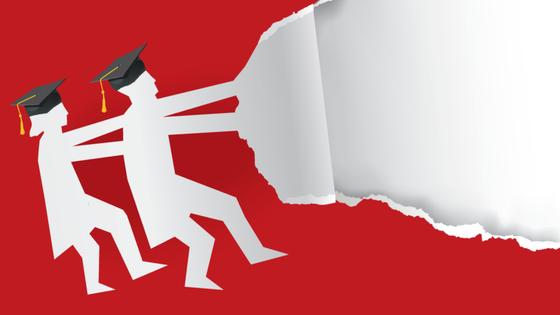In the UK, there were massive protests of graduating high school students who disagree with unfairly low grades
The reason for the peaceful marches was a special algorithm that universities applied to downgrade scores of common school graduates and raised scores for students from private schools. As a result, about 40% of the applicants had their scores reduced.

Prior to the self-isolation, British universities ranked applicants based on their projected grades. To compete for a place at a university, a future student had to pass A-Level exams and score at least a threshold score in their main subjects. In 2020, due to the coronavirus pandemic, A-Level exams were replaced by an algorithm that calculates applicants' chances of admission. As a result, to grade students, the system assessed the ranking of specific students and the rating of the schools.
The assessment generated by the algorithm gave unconditional leadership to graduates of respectable schools with an excellent reputation. According to the analytical company FFT Education Datalab, when grading, in addition to the rating of students and schools, the formula took into account the number of people who studied a specific subject in a specific school. Thus, the more students took the class, the higher was their grades in that subject.
According to The Guardian, about 40% of all UK graduates have experienced downgrading this year. That caused massive student protests in the UK and Scotland. To address this issue, the UK government dropped the algorithm, and instead they will use the grades based on teachers' estimates. However, this way out of the situation still is not optimal for many college applicants. Wired points out that teachers' predictions depend a lot on their prejudices and can also be biased.












 Test: How Psychologically Mature Are You? Check Your Inner Foundation.
Test: How Psychologically Mature Are You? Check Your Inner Foundation.
 Test. Check Your Social Media Dependency Level!
Test. Check Your Social Media Dependency Level!
 Test: What Business is Right For You?
Test: What Business is Right For You?
 Test: How Prone Are You to Abusive Behavior as a Manager?
Test: How Prone Are You to Abusive Behavior as a Manager?
 Test. What superpower would you possess if you were a superhero?
Test. What superpower would you possess if you were a superhero?
 Test. What Should You Let Go of Before Winter Ends?
Test. What Should You Let Go of Before Winter Ends?
